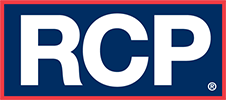Compliance Programs
RCP has a proven track record delivering comprehensive, accurate, and user friendly DOT compliance programs that stand the test of time and hold up under regulatory scrutiny. Our experts are among the most knowledgeable in the industry when it comes to understanding state and federal regulations and interpreting how inspection protocols, advisory bulletins, and enforcement guidelines impact compliance programs. Because of our expertise, RCP is also frequently called upon to review and perform third-party gap assessments of programs under scrutiny by regulators.
.-
Company Specific O&M procedures can be used for all pipelines along with all pipeline information listed in the manual and would require revision with purchase or divestiture of a pipeline.
-
Pipeline Specific Operating Manuals (PSOM) are written for each independently operated pipeline or pipeline segment which includes operating parameters, construction information and listing of regulated equipment; along with normal, abnormal and emergency operations procedures specific to that pipeline or pipeline segment.
RCP works closely with clients to determine which regulations apply to them and the best way to comply while incorporating any existing company procedures and forms. Training is also available for appropriate personnel on the function and use of the Operations and Maintenance Program including the requirements contained within the program, each individuals responsibilities in using the program to comply with regulation, and suggestions for maintaining compliance.
RCP's Control Room Management Plans include procedures to address all elements of the CRM Rule including:
-
Compliance Checklists
-
Fatigue Management Guidelines
-
Fatigue Mitigation Strategies
-
Comprehensive Alarm Management Plans
-
Shift Change Procedures that include all elements of API RP 1168
-
Controller Responsibilities during and post Normal, Abnormal, and Emergency conditions
-
Training materials designed to be incorporated into the Control Room environment without disrupting daily workflow.
RCP also performs gap analysis and updates of existing control room management procedures and practices to determine which, if any, elements are missing, in order to help prevent regulatory non-compliance. In addition, RCP will make recommendations for addressing missing or inadequate CRM Plan elements to "close the gap”, such as making sure the CRM Program Manual is integrated with the O&M Manual, Site Specific Procedures, Emergency Response Plans, and Operator Qualification (OQ) program, and in some cases revising those manuals order to be consistent with the CRM Program Manual.
-
Written Procedures and Forms
-
Spill Modeling
-
HCA Identification and Class Location Analysis
-
GIS/Mapping
-
Risk Modeling
-
Preventive and Mitigative Measures
-
Program Development
-
Program Gap Analysis
-
Annual Self-Assessment
-
Address Verification Methodology
-
Mandated Third Party Effectiveness Evaluations and its Impact on the Operator's Program
RCP also provides assistance and guidance for Public Awareness Effectiveness Program inspections throughout the entire inspection process including:
-
Pre-Inspection Preparation
-
Public Awareness Recordkeeping Audit
-
Review of Existing Effectiveness Evaluation and Recommendations for Continuous Improvement
-
Inspection Support (On-Site Throughout Audit)
-
One Call Response Process Overview
-
One Call Screening Guidelines
-
New Property Development Information
-
Required One Call Documentation
-
Third Party Contact Sheet
-
Locating Procedures
-
Line Marking Procedures
-
Excavation/Backfill Procedures
-
Excavation Incident Follow-Up Process
-
Pending Jobs Procedure
-
Training Procedures
-
Procedure for Making a One Call Notification
-
Generally accepted means of identifying water depths as well as pipe burial depths below the underwater natural bottom;
-
Criteria to determine whether pipelines being inspected meet the definition of "hazard to navigation" or "exposed underwater pipeline" as defined in 49 CFR 192.2 and 49 CFR 195.2; and,
-
Measures that could be taken by operators in the event their pipelines are determined to meet the definition of "hazard to navigation" or "exposed underwater pipeline."
-
Reporting and permitting requirements for "exposed underwater pipeline" or "hazard to navigation" pipelines.
-
Criteria to determine next depth of cover inspection date. 1
1 RCP has developed a proprietary Inspection Interval Risk Model (IIRM) to help clients determine next depth to cover inspection dates by ranking external threats and associated consequences such as: third party intervention (such as shipping lanes, anchor patters, etc.); environmental or natural intervention; pipeline design and installation characteristics; potential HCA impacts; and release history.
RCP has in-depth knowledge and experience in developing both PSM (OSHA 29 CFR 1910.119) and RMP (EPA 40 CFR part 68) programs as well as conducting program gap analysis and effectiveness evaluations of existing programs against regulatory requirements and industry.
RCP’s experts have been responsible for the success of all facets of the process safety, health & safety, and risk management programs for chemical and petrochemical organizations including global responsibilities for risk management, security, and compliance strategy integration.
Our Certified Safety Professionals have coordinated PSM and RMP compliance for highly hazardous production processes and lead several PSM/RMP compliance audit teams at various facilities throughout the country.
RCP provides a full range of services for your company’s SPCC Plan and has earned a nationwide reputation for providing high-quality, compliant SPCC Plans to a wide variety of industries. Our senior staff has decades of experience in designing and implementing SPCC Plans with a thorough understanding of the operational and regulatory issues that face our clients.
RCP has completed and certified SPCC Plans for over 200 oil and gas production sites ranging in size from single test vessels to large gas treatment plants, and included both onshore and offshore facilities. These Plans incorporated the numerous requirements contained in the SPCC Rule.
RCP's lead professionals are heavily involved in industry and agency task forces and committees related to spill planning and emergency response. We can conduct a gap analysis of your current SPCC Plan and provide updates and recommendations based on the SPCC Guidance for Regional Inspectors.
